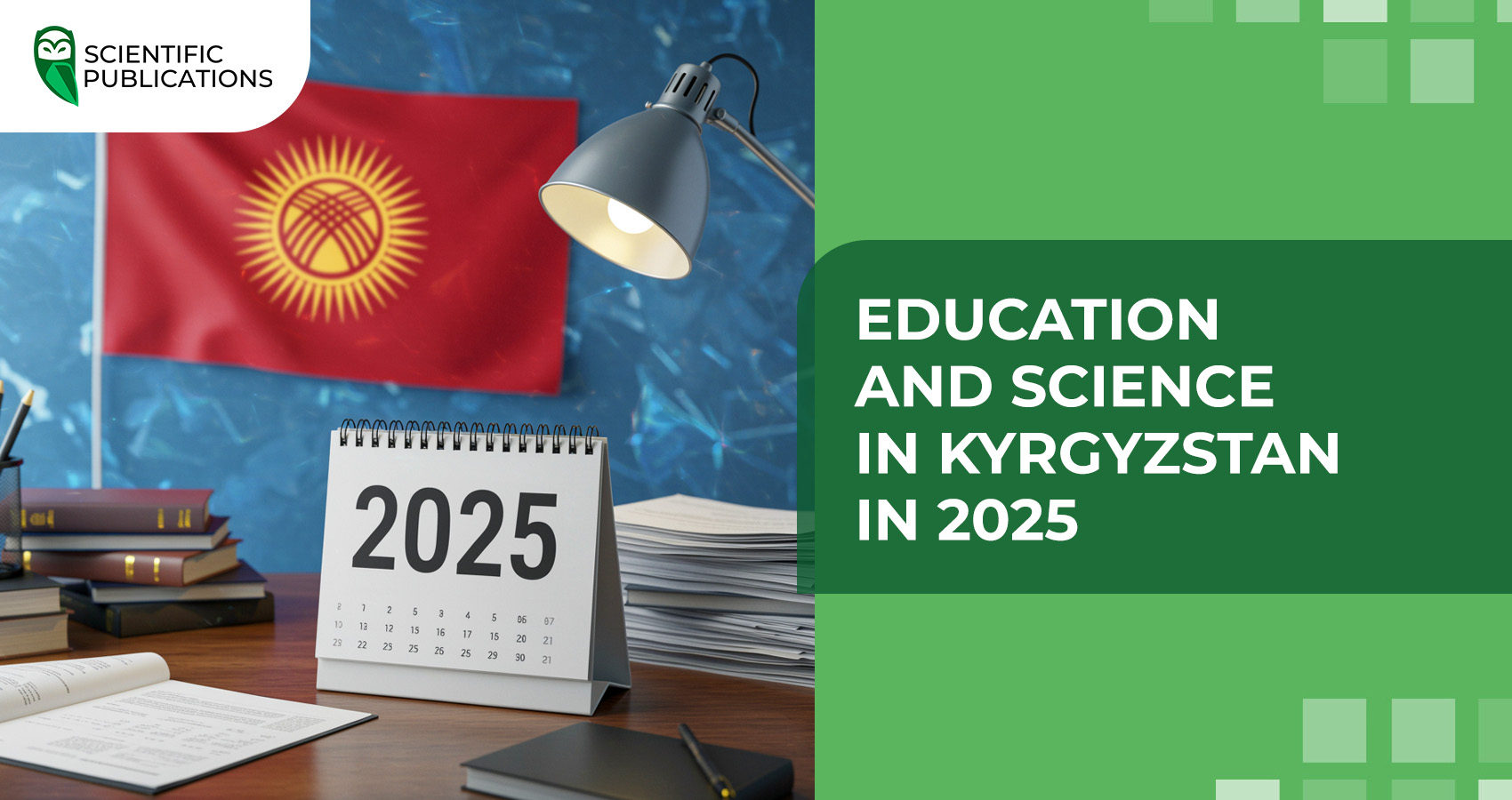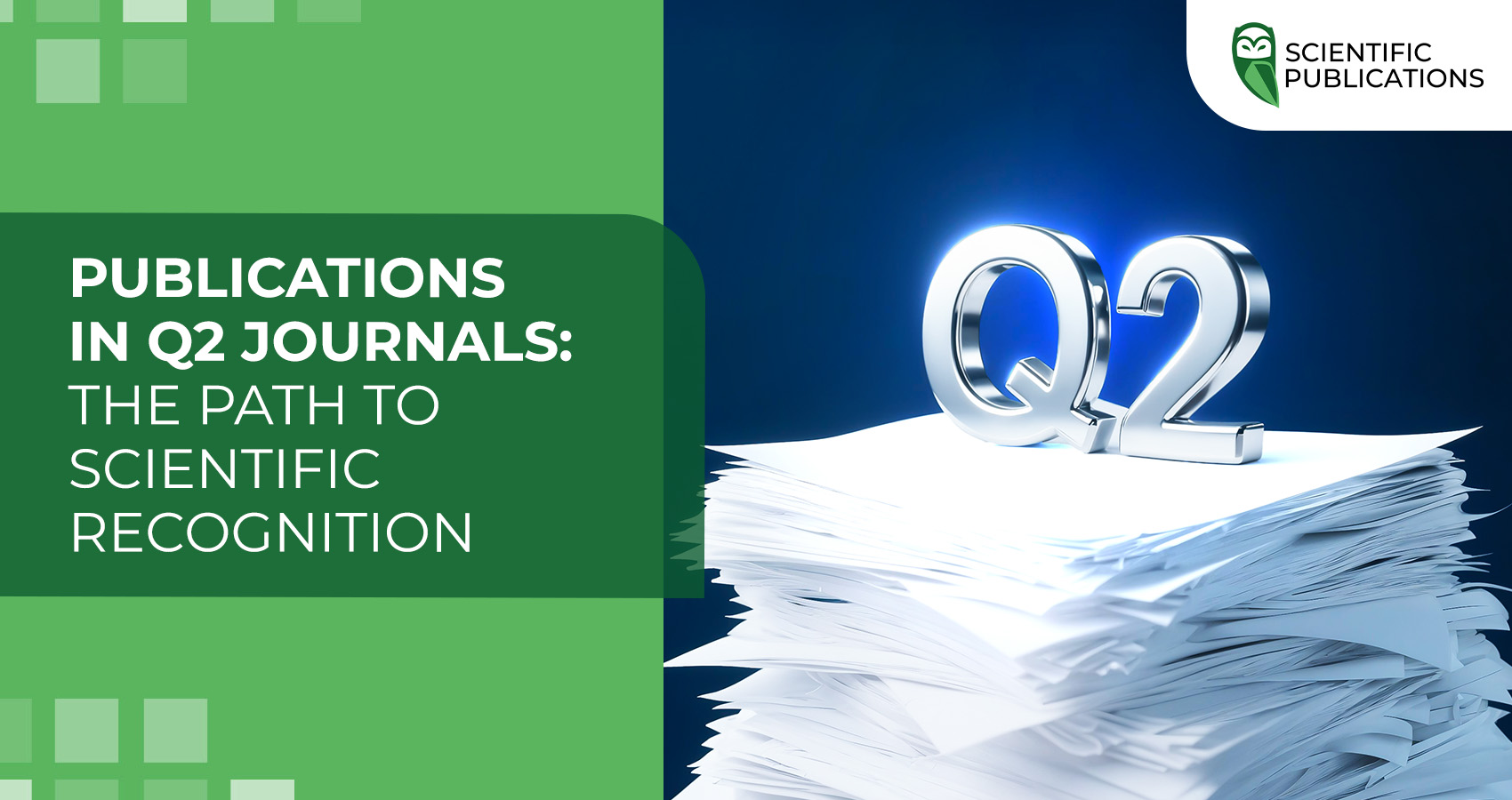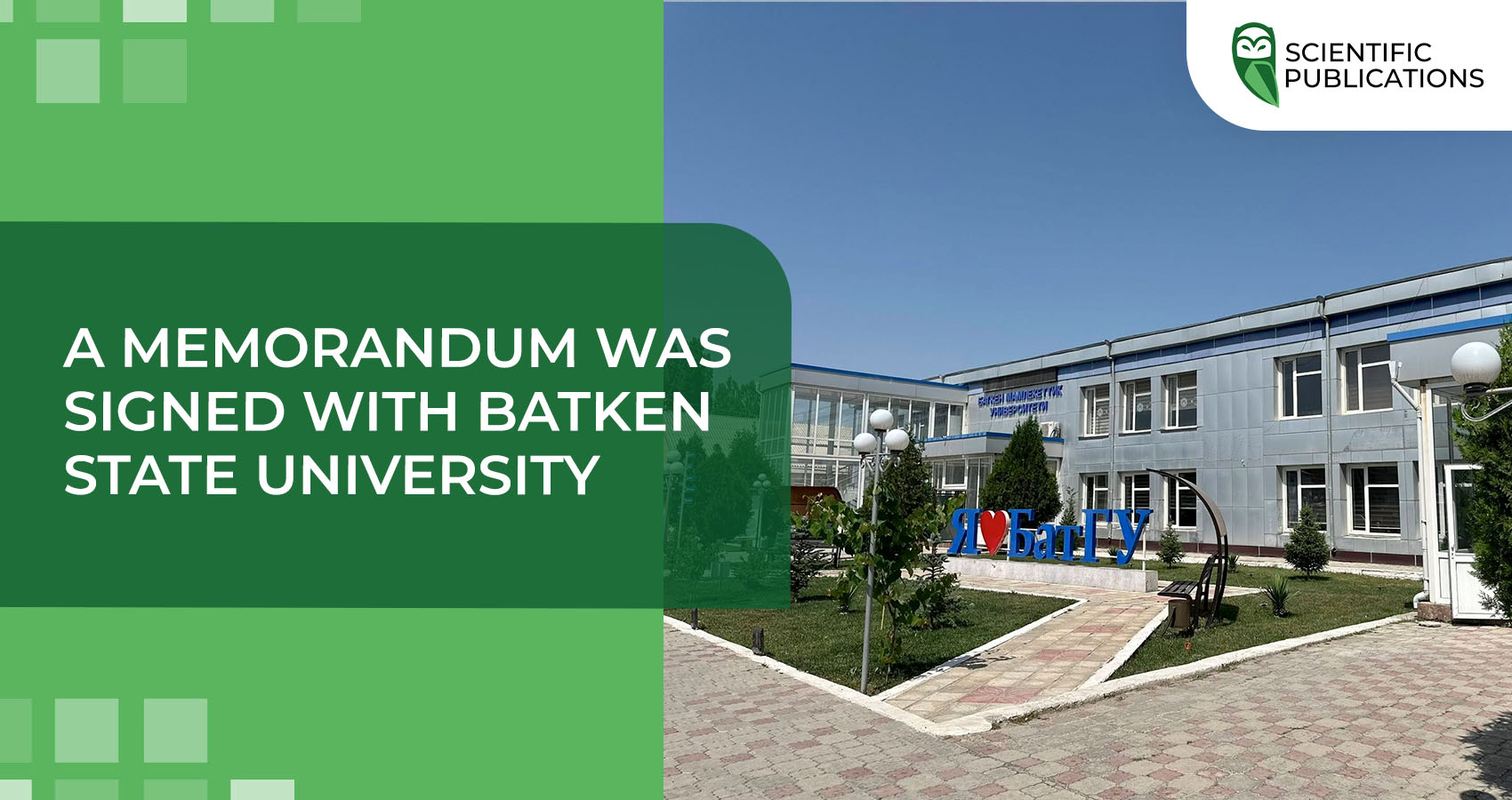The development of education and science is a strategic priority for every state, as these sectors shape the future of the country. In 2025, Kyrgyzstan underwent important changes that mark a new stage in supporting students and scientists. Increased funding, new support programmes, and bonuses for scientists all testify to the state's desire to invest in knowledge and scientific development. In this article, we will discuss what initiatives are being implemented, how much funding is allocated to science, and how scientists are supported in Kyrgyzstan.

Kyrgyzstan's investment in education
In 2025, Kyrgyzstan took a decisive step towards the development of the education sector: funding for this sector reached a record level of 68.8 billion soms, which corresponds to 4.2% of the country's gross domestic product. This is not only the highest figure in recent years, but also evidence of a new approach to state policy – treating education not as an expense, but as a fundamental investment in the future of the nation.
One of the most ambitious projects was an initiative to build more than 500 new schools throughout the republic. This step is intended to significantly increase the accessibility of education and ensure equal learning conditions for children in every region of the country.
In the field of higher education, there are 74 universities operating in 2025, of which 34 are state-owned and 40 are privately run. This structure of higher education reflects the dynamic development of the academic environment in the country and the growing demand for quality education.
Kyrgyzstan's transition to a 12-year school system
One of the key educational reforms of 2025 was the adoption of a new State Standard for General Secondary Education. Kyrgyzstan is officially transitioning to a 12-year education system, following the example of many developed countries. This transformation aims not only to improve the quality of schoolchildren's preparation for further life, study and professional activity, but also to create favourable conditions for the development of personal skills.
As part of the implementation of the new system, curricula have been updated and modern textbooks on core subjects have been developed. Significant attention is paid to the professional training of teachers, who undergo training courses and are provided with the necessary teaching materials.
The transition to 12-year education is accompanied by systematic monitoring. In 2025:
- all children who have reached the age of six will start their education in the first grade of a 12-year school
- students who have completed the Naryste preschool programme will continue their education directly in the second grade
- children born in 2015 who have completed the third grade of the 11-year school system will move on to the fifth grade under the new standard
- students born in 2012 who have completed the sixth grade of the old system will continue their education in the eighth grade of the 12-year school system
This step marks a profound reform of the school education system, aimed at harmonisation with international standards and increasing the competitiveness of the younger generation.
Grant support for students in 2025/2026
In the 2025/2026 academic year, the Kyrgyz government is continuing its active policy of investing in human capital by introducing a large-scale programme of state funding for higher and vocational education. According to the Ministry of Science, Higher Education and Innovation, a total of 10,000 educational grants will be considered for admission to universities and colleges across the country.
Distribution of grants
- 4,131 grants will be allocated to support private higher education institutions.
- 2,586 grants will be provided through an innovative voucher mechanism, whereby funding ‘follows the student’ to the chosen institution. The vouchers cover both bachelor's programmes and specialised and secondary vocational education, particularly in the field of education.
Quotas for specific categories of applicants
- 50 places for applicants with the highest results in the National Testing (admission without exams)
- 550 places under international agreements
- 75 places for ethnic Kyrgyz living outside the country
- 500 – for persons with disabilities, orphans and children in care
- 20 – for children of those who died in the tragic events of 2002, 2010 and 2021, as well as for persons with “kayatel” status
Distribution of grants by priority specialities
- 1,876 grants – for bachelor's programmes in teaching
- 20 – for specialisations in the same field
- 645 – in the field of education and teaching sciences
- 45 – for the speciality “Physical Culture and Sport”.
Special conditions apply to educational institutions in the Batken region – the general distribution system does not apply to them.
Official quotas for admission at the expense of state grants will be communicated to educational institutions in the near future. The Ministry is required to submit a final report on the implementation of the programme by 30 November 2025.
To participate in the competitive selection process, applicants must take the National Test and choose a speciality from the approved list. Grants are distributed according to the test results – based on the score rating.
This initiative not only expands access to quality education but also shapes the country's future human resource potential.
State support for science
In 2025, funding for the National Academy of Sciences of Kyrgyzstan will reach 641.3 million soms, which is 56.4 million more than in the previous year. This figure is recorded in the law on the republican budget for the current year.
As stated in the explanatory note to the budget, the funds will be allocated to:
- Expanding funding for research projects.
- Supporting the Research Centre for Traditional Culture and Arts.
- Increasing the volume of commercial work performed by the Academy's institutes.
Today, the NAS structure includes 19 main institutes and 9 research centres that ensure the development of fundamental and applied science.
Salary supplements for scientists in Kyrgyzstan
2025 also saw a real increase in support for scientists. Salaries for researchers were increased, and 97 research projects received state funding.
In addition, on 1 January 2025, on the initiative of the Cabinet of Ministers, monthly salary supplements were introduced for scientific workers:
- 2,700 som for doctors of science
- 1,350 som for candidates of science, doctors of philosophy (PhD) or doctors in the field
The allowance is granted for only one scientific degree – priority is given to the degree of Doctor of Science if the scientist has several qualifications. Payments are made to employees of budgetary institutions from the state budget, and in commercial (self-financing) organisations – from their own funds.
This approach demonstrates the state's desire not only to preserve the country's scientific potential, but also to create incentives for the development of new generations of researchers.
Challenges for science: What is holding back the development of science in Kyrgyzstan?
Despite increased funding and individual steps taken by the government to support the scientific sector, science in Kyrgyzstan continues to operate under numerous barriers that hinder its development.
Key issues in science in Kyrgyzstan
- Limited funding: the share of the budget allocated to science remains low, limiting opportunities for modern research.
- Material and technical backwardness: a significant proportion of laboratories use equipment dating back to the 1980s and 1990s, which significantly reduces the quality and competitiveness of research.
- Staff crisis and migration of young scientists: promising researchers are leaving en masse for Kazakhstan, Turkey, the EU, the US and other countries in search of better conditions for scientific activity.
- Ageing scientific staff: the average age of researchers exceeds 50 years, while young people avoid scientific careers due to low social guarantees and limited opportunities for professional growth.
- Relevance of topics: many scientific institutions continue to develop topics that do not meet the current demands of either the market or the global scientific community.
- Uneven distribution of resources: funding, grants and subsidies are often awarded on the basis of proximity rather than scientific merit.
- Language barrier: limited foreign language skills hinder the publication of articles in influential international databases such as Scopus or Web of Science.
- Low wages: salaries for scientists and teachers remain uncompetitive, which reduces the prestige of the profession and undermines motivation to work in science.
These challenges create a difficult environment for the development of science in the country and require systemic solutions at the state level.
Kyrgyzstan's science development strategy
With the aim of strengthening international scientific cooperation, Kyrgyzstan participates in prestigious global initiatives, in particular the European Union's Horizon Europe programme, and actively develops partnerships with scientific institutions in Turkey, China and other countries. Although international publication activity is growing, the country still ranks among the lowest among CIS states in terms of the number of scientific articles indexed in the Scopus and Web of Science databases.
Strategic conditions for the development of science in Kyrgyzstan
- Increasing state funding for science to 0.5-1% of GDP, which will ensure the basic stability of the system.
- Creating conditions for young scientists to return from abroad and encouraging them to stay and work in the republic.
- Deepening integration with the international scientific community, both through project cooperation and through access to the resources of leading scientific centres in the EU, China, Turkey and other countries.
- Improving the quality of higher education and developing research components in universities.
- Creating technology parks and stimulating a start-up culture, particularly in the fields of innovation, biotechnology and engineering.
- Developing the IT sector with a focus not only on outsourcing but also on creating its own digital products.
- Utilising the capabilities of artificial intelligence in education, science and management systems.
- Introduction of a graduated payment system for scientists – following the example of Uzbekistan, where additional payments depend on the level and indexation of publications.
The implementation of these areas will allow Kyrgyzstan not only to strengthen its position in the global scientific space, but also to form a modern innovative economy.
Kyrgyzstan's development strategy until 2040 provides for a gradual increase in government spending on science to 1% of GDP.
Despite the existing difficulties, Kyrgyzstan is taking confident steps in the development of education and science, aimed at modernisation and integration into the global community. Increased funding, reforms in the school system, expanded grant support and international partnerships are creating the basis for further progress. However, in order to achieve sustainable development, it is necessary to overcome personnel, technical and organisational barriers, ensure the motivation of young scientists and introduce modern technologies. Only in this way will Kyrgyzstan be able to strengthen its scientific and educational potential and make a significant contribution to the global innovation process.
Develop science in Kyrgyzstan and reach new heights together with Scientific Publications. We will help you publish your research in the leading international databases Scopus and Web of Science, as well as promote it and increase its visibility so that your scientific achievements are seen by as many researchers around the world as possible. Leave a request on the website or fill out the form below, and our manager will contact you shortly for a free consultation. Together to new heights!





